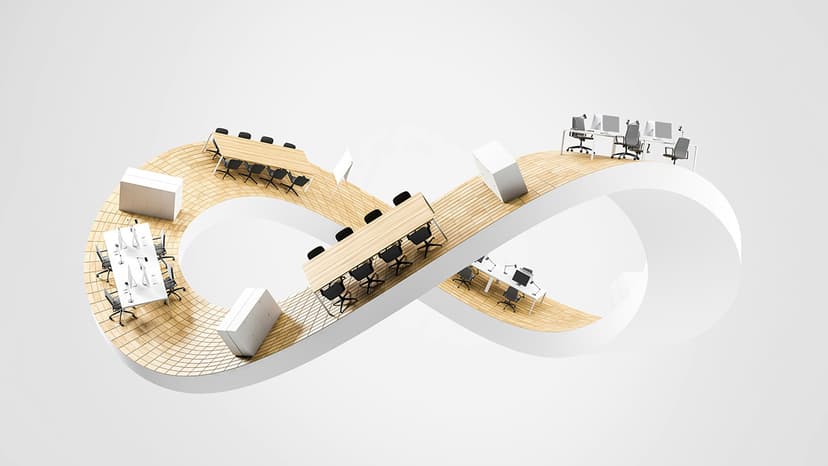How to Easily Integrate Bootstrap with React for Stunning User Interfaces
Are you a developer looking to enhance the visual appeal of your React applications with the sleek design elements provided by Bootstrap? Integrating Bootstrap into a React project is a popular choice among developers seeking to create aesthetically pleasing user interfaces quickly and efficiently. In this article, we will walk you through the simple steps to seamlessly incorporate Bootstrap into your React applications, allowing you to harness the power of both frameworks for stunning UI design.
Why Bootstrap and React?
Before we dive into the integration process, it's essential to understand the benefits of using Bootstrap in conjunction with React. Bootstrap is a powerful front-end framework that offers a wide range of pre-designed components and styles, making it easy to create responsive and visually appealing websites. On the other hand, React is a popular JavaScript library for building user interfaces, known for its component-based architecture and efficient rendering.
By combining Bootstrap and React, developers can leverage the strengths of both frameworks to streamline the UI development process. Bootstrap's extensive set of CSS classes and components can be seamlessly integrated into React components, allowing you to create professional-looking interfaces without having to write lengthy CSS styles from scratch.
Getting Started
To begin integrating Bootstrap with React, the first step is to set up a new React application using Create React App or any other preferred method. Once you have your React project up and running, you can install Bootstrap by using npm or yarn. Simply run the following command in your project directory:
Bash
or
Bash
This command will download the Bootstrap library and its dependencies, making them available for use in your React application.
Importing Bootstrap Styles
After installing Bootstrap, you need to import its styles into your React application. The recommended way to do this is by importing the bootstrap.min.css file in your main index.js file. This will ensure that the Bootstrap styles are applied globally across your entire application.
In your index.js file, add the following import statement at the top:
Javascript
With this simple step, you have successfully integrated Bootstrap styles into your React application, allowing you to start using Bootstrap classes and components in your components.
Using Bootstrap Components in React
Once you have imported Bootstrap styles, you can start incorporating Bootstrap components into your React components. Bootstrap offers a wide variety of components such as buttons, navbars, cards, and forms, which can be easily used in React applications by applying the appropriate CSS classes.
For example, you can create a simple Bootstrap card component in React by using the following code:
Javascript
In this example, we have created a basic card component using Bootstrap classes to structure the layout and styling of the card. By utilizing Bootstrap's predefined CSS classes, you can quickly create visually appealing components in your React application.
Customizing Bootstrap Styles
While Bootstrap provides a rich set of ready-to-use styles, you may want to customize the appearance of certain components to align with your application's design requirements. Fortunately, Bootstrap offers the flexibility to override its default styles by applying custom CSS classes or inline styles in your React components.
For instance, if you wish to modify the background color of a button component, you can define a custom class or inline style to achieve the desired look:
Javascript
Javascript
By combining Bootstrap's predefined styles with your customizations, you can create unique and visually appealing interfaces that reflect your design preferences while benefiting from Bootstrap's responsive layout and component consistency.
Leveraging Bootstrap JavaScript Components
In addition to its CSS components, Bootstrap also offers a collection of interactive JavaScript components such as modals, tooltips, and carousels that can enhance the user experience of your React application. To utilize Bootstrap's JavaScript functionality in React, you can leverage the power of third-party libraries like react-bootstrap or reactstrap.
React Bootstrap is a popular library that provides React components for Bootstrap JavaScript components, allowing you to seamlessly integrate interactive elements into your React application.
To install React Bootstrap, you can use npm or yarn:
Bash
or
Bash
Once you have installed React Bootstrap, you can import and use its components in your React application:
Javascript
By incorporating React Bootstrap components, you can easily add dynamic and interactive features to your React application while maintaining the cohesive visual style provided by Bootstrap.
Integrating Bootstrap with React offers a powerful combination of design flexibility and development efficiency for creating visually compelling user interfaces. By following the straightforward steps outlined in this article, you can seamlessly incorporate Bootstrap into your React projects and unlock the full potential of both frameworks.
Whether you are building a simple portfolio website or a complex web application, the synergy between Bootstrap and React empowers you to deliver engaging and responsive UI designs that captivate users and elevate the overall user experience. Start integrating Bootstrap with React today and take your UI development to the next level.












